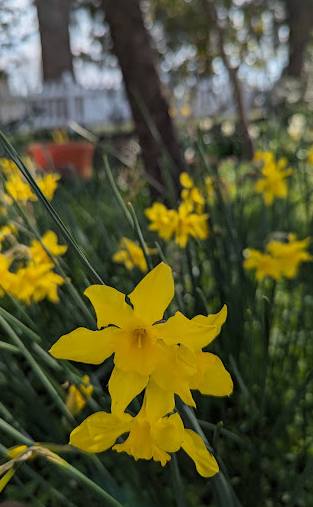Why We Need to Rethink Conservation
- Clifford Brock
- Sep 18, 2022
- 3 min read
You'd have to be living deep underground to not have noticed that our climate is changing. Whether you call it "climate change" or "global warming", the Earth's atmosphere is altering because of our activity. We have and will continue emitting fossilized C02 into the atmosphere, and that along with increasing methane emissions will continue pushing global temperatures up causing a cascade of changes. Despite all our efforts to "go green" and reduce fossil fuels, we are marching into unknown territory and into a generally more volatile and hotter world!
This reality has implications for not only us, but it will radically reshape Earth's biosphere. Historically, in deep the past, in similar periods of rapid climate change, our planet experienced huge extinction events. And there is no reason to think this won't happen again. Yet the difference today is that we humans have the power to save and preserve life.

Many of us feel an urgent need to reexamine how we define "native". No longer can we adhere to the historic doctrine of ecoregions being fixed in space and unchanging. As one nursery owner put it "our native plants are dying", and future heat waves, droughts, and waves of pathogens and insect plagues will certainly reconfigure our bioregions. Plant evolution will not be quick enough to cope with an ever-accelerating rate of climate change. Species will either migrate or go extinct.
Migration seems like a possibility except for the fact that we've so disrupted and fragmented the environment. Many of today's forests are essentially island communities, completely cut off from larger ecoregions. At this point, there are few natural corridors for slow dispersal species like bloodroot and buckeye. And habitat fragmentation isn't the only threat to migration. Invasive species like armadillos and European wild hogs are wreaking havoc on our ephemeral wildflowers as are out-of-control deer populations.

Of course, we are in this predicament because of ourselves! Globalization and unchecked development have and will continue to push many species to the brink. What can we do to avert this forthcoming seemingly inevitable mass extinction?
I think we have a responsibility to preserve life. And this should include efforts to relocate species, and perhaps even ecosystems, to new more hospitable regions- whether that be 500 miles northward or to higher elevations. Finding suitable climates for threatened species should be our utmost priority.
Not everything will be able to be saved, yet we must safeguard as much as we can. And as a horticulturist, I feel we should try to integrate as much genetic diversity into our gardens as possible. Each of us has a role to play in preserving life. Our gardens can be oases for life, for they are as much a part of nature as our national parks.
I also urge the conservation establishment to expedite efforts to relocate species northward. The Canadian government is far ahead of us on this front. They've planted seedings from the continental US in test sites all across British Columbia. https://www2.gov.bc.ca/gov/content/industry/forestry/managing-our-forest-resources/tree-seed/forest-genetics/seed-transfer-climate-change/assisted-migration-adaptation-trial
We are far behind the rest of the world when it comes to the real-world implications of climate change. I believe this is due to the strongly entrenched idea that "native" species are somehow sacred and fixed and that ecosystems shouldn't be "messed with". I believe this almost religious fixation on native purism clouds our judgment and elicits a reluctance for any attempt to relocate species.

The fact is that everything in our world is in some way touched by humanity. There are almost no areas that haven't been affected by us. Invasive species are here to stay and, although I do believe we must eradicate them in sensitive biodiverse hotspots, we must also accept that they too are an inevitable outcome of globalization.
Ok, let me get off this soapbox. I realize most people aren't as passionate as I am about this crisis. And let's face it, probably no one actually reads my blog. Yet I still feel a need to raise my voice and call for action. I don't want to be an alarmist, but all the signs point to impending environmental cataclysm and extinction. But I'm hopeful that our species, though responsible for all of this, is also capable of preserving species for future generations.




Comments